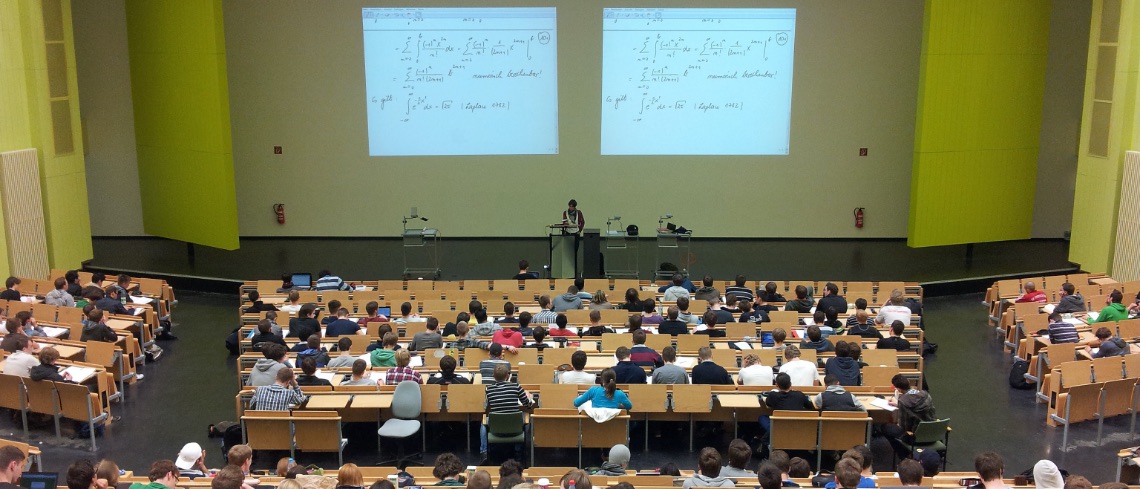To improve the accessibility of our content, please find the audio version of this blog post.
The Award
In January 2020, ST was one of only five foreign companies to receive an award from the Ministry of Education of the People’s Republic of China for its efforts in supporting engineering education in the country in 2019. This honor was in recognition of ST’s outstanding contributions to the “University-Industry collaboration education” program since 2018, an initiative from the Ministry of Education that began in 2014 to nurture the next generation of engineers in China. It was thus a highly symbolic recognition of the success of our initiatives aiming to empower the youth and prepare them to lead the next generation of innovations.
Since we opened our first joint lab at Shanghai Jiaotong University in 2007, we’ve built significant partnerships in the education realm and are currently rolling out our ST China University Program. It is thus worth delving into the various projects that are currently driving our collaborations with universities in the Middle Kingdom, such as our Teacher Training Teacher program or our work with university professors working on textbooks that focus on artificial intelligence on embedded systems, among many other things. We also established the Education Alliance, which fosters a close partnership with post-secondary establishments.
[pretty-callout align=”right”]
The 5 Components of the ST China University Program
- Elite Curriculum based on STM32 (6 new coursework in 2019 and more than 50 by year-end for the benefit of more than 40,000 students)
- Teacher Training Teaching (6 sessions in 2019, 13 sessions since 2017, reaching more than 40,0000 students)
- Design Contests (more than 6,000 students using STM32 MCUs in 2019, more than 26,000 since 2010)
- Joint Labs (21 new joint labs in 2019, more than 100 since 2006)
- DIY Projects (first project is a multimeter in 2019)
[/pretty-callout]
A few months ago, we shared the top 3 winners of the Arm Design Contest 2019 in Taiwan and how the victorious University Students used STM32 MCUs to create innovative and impressive designs. From a badminton serve machine to a wrist artery vibration monitor and a batting tracker, it was astonishing to see students take our tools and microcontrollers to come up with such promising designs. The event was also a reflection of our desire to work with faculties across the world. Whether it is our collaboration with Nanyang Polytechnic in Singapore or our recent panel discussion with American professors on teaching during COVID, we continue to work closely with educators. Let’s thus explore the initiative we undertook in China that enabled us to receive such prestigious recognition from its Ministry of Education.
Education in China: Teacher Training Teacher and University Collaborations
One of our main initiatives is the Teacher Training Teacher program, which led to 6 sessions that engaged a total of 210 teachers from more than 150 universities in 2019. Covering a wide range of topics, from micro process theory to embedded systems and smart designs, they all used STM32 microcontrollers as a foundation for the coursework. The educators that developed the lessons or textbooks offered their insights and ensured other faculty members could build upon their experience while they all networked with each other. The initiative was so successful that 73% of the teachers that took part in the event ended setting up a curriculum based on STM32, thus ensuring that tens of thousands of students get relevant industry experience with our devices before they enter the job market.

The Teacher Training Teacher conferences were also successful because, before the very first meetup, we had already spent considerable time with the professors who are writing the various materials at the center of these events. For instance, one educator from Suzhou University is developing a textbook that uses STM32 components and STM32Cube.AI to cover complex artificial intelligence concepts on embedded systems. By using our tool, which converts a neural network into an optimized code for STM32, educators can bring sophisticated and modern solutions to students. Another example is Professor Hairong Yan from the Beijing University of Technology, who’s been working with us for five years, who has developed a popular course on embedded systems and has been teaching it for a few years.
Education in China: Dealing With COVID-19
The coursework and textbooks offer practical solutions thanks to their use of our hardware and software, but we also assist some establishments with educational projects. For instance, our teams in China developed a DIY multimeter designed to be a pedagogical tool. It runs on an STM32F767 and an STM32G071 and serves as a support for the development of a graphical user interface, the use of sensors, signal processing, and cloud connections, among many other concepts. Additionally, with the new realities under COVID-19, we were able to work with these teachers as they moved their courses to the web. As online courses continue to be even more popular in China, we collaborate with partners to define accreditations and certifications. It will ensure students graduate with relevant knowledge and experience as well as offer better assurances to employers, making them more willing to hire these new talents.
